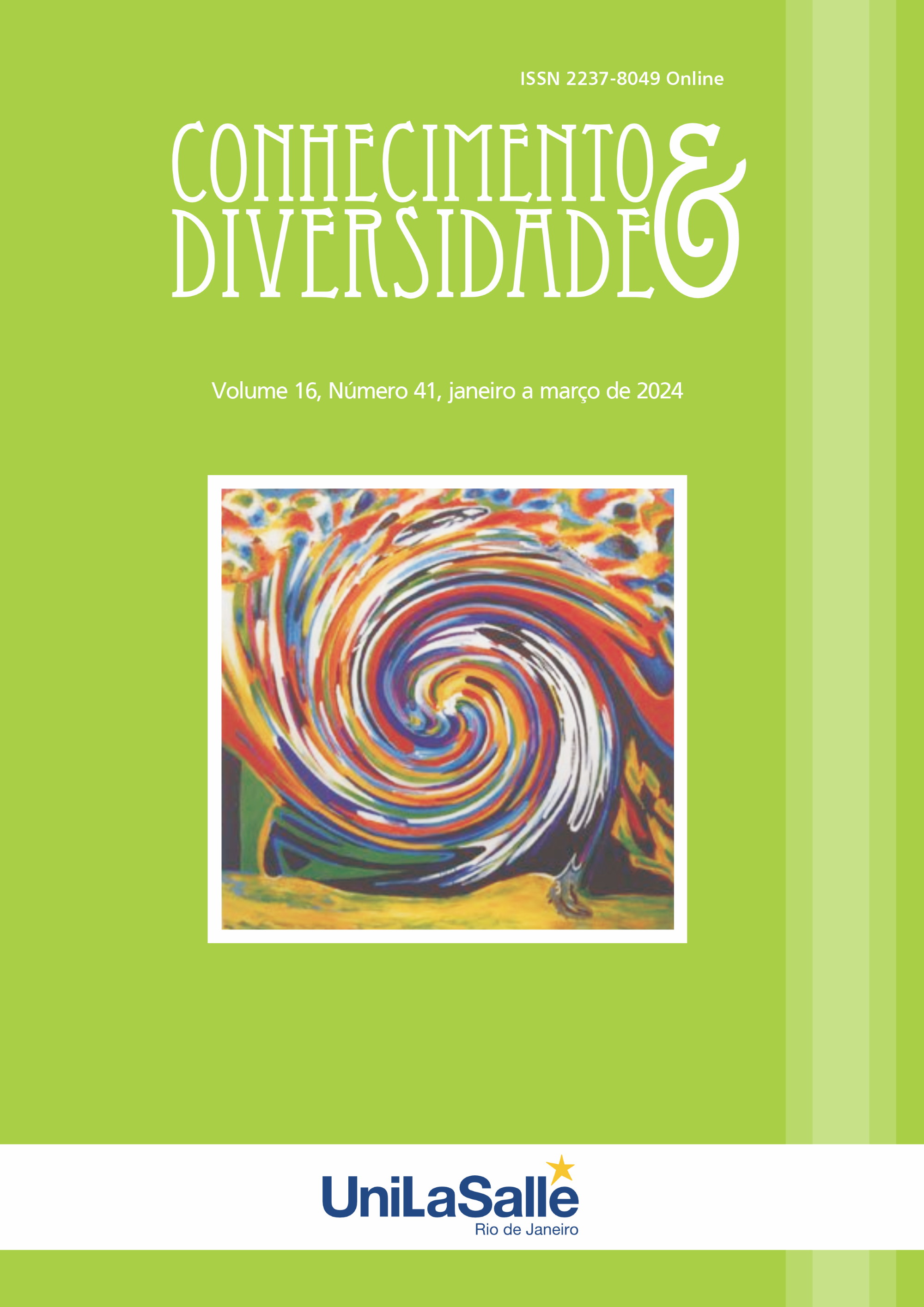EMERGING MODEL FOR TEACHING PAINTING
A PROPOSAL FOR UNIVERSITY STUDENTS OF VISUAL ARTS
DOI:
https://doi.org/10.18316/rcd.v16i41.11611Keywords:
Emerging model; Painting teaching; Unconventional materialsAbstract
The purpose of this research, within the framework of the model, is to promote the use of unconventional materials in the teaching of painting as a strategy for the transformation of training practice in the workshops of art schools at universities. Theoretically, it was based on Fereiro and Calderón (2005), Frega (2009), Marchán (2012) and Bellido (2015), among others. In turn, it was supported by relevant methodological procedures, such as a type of purposeful research, with a qualitative methodological approach, taking into account documentary analysis units, texts, articles, among others. Among some contributions, the emerging model constitutes a tool that promotes creativity and experimentation with unconventional materials. It is concluded that the strategies on the part of the teacher are the fundamental key to the stimulation, motivation and development of the creative potential of the student.
References
Bellido, M. (2015). Evolución material, técnica y conceptual en las obras de Arte Contemporáneo. Revista Opción, Año 31, No. Especial 6 (2015): 107 - 127 ISSN 1012-1587. Universidad del Zulia. https://produccioncientificaluz.org/index.php/opcion/article/download/20718/20608/
Di Gracio, M.G. (2016). Nuestra América, nuestros docentes. Praxis Educativa, vol. 19, núm. 3, pp. 9-11, 2016. Universidad Nacional de La Pampa. https://www.redalyc.org/journal/1531/153143329001/html/
Frega, A. L. (2009). Preparación de los artistas como educadores profesionales: necesidades y desafíos. La formación docente en debate (162-166). BuenosAires. Academia Nacional de Educación.
Glover, M. (2018). Perfil psicológico de un artista. Psicología – Online. https://www.psicologia-online.com/perfil-psicologico-de-un-artista-4077.html
Meso-Rubio, F. (2008). Aprender a enseñar las artes visuales desde una perspectiva crítica y construccionista. En F. Maeso (Coord.), El arte de enseñar el arte. Metodología innovadora en bellas artes (pp. 129-152). Sevilla: Edita.
Marchán Fiz, S. (2012). Del arte objetual al arte de concepto. Ediciones Akal Estética. 11ª. Edición: Madrid España.
Marrero, T. (2004). Hacia una educación para la emancipación. Núcleo Abierto UNESR: Venezuela.
Martínez, M. (2015). El paradigma emergente: hacia una nueva teoría de la racionalidad científica. Editorial Trillas: Mexico.
Megaña, J.I. (2009). Por una metodología en los estudios superiores de las artes. Observar 2009, 3 pp. 109-114. https://www.raco.cat/index.php/Observar/article/download/179280/231740
Montané, L. (2009). Profesores-artistas y didáctica generativa: Experiencias educativas en la universidad. Universidad de Barcelona.
Morales-Gómez, G., Reza-Sánchez, L., Galindo-Mosquera, S. y Rizzo-Bajaña, P. (2019). ¿Qué significa “fundamentos filosóficos” de un modelo educativo de calidad?. Revista Ciencia Unemi, vol. 12, núm. 31, pp. 116-127, 2019. Universidad Estatal de Milagro. https://www.redalyc.org/journal/5826/582661248012/html/
Parra, K.N. (2014). El docente y el uso de la mediación en los procesos de enseñanza y aprendizaje. Revista de Investigación vol.38 no.83 Caracas dic. 2014. http://ve.scielo.org/scielo.php?script=sci_arttext&pid=S1010-29142014000300009
Pérez-Alonso, E. (2022). De la libertad de cátedra a la instrumentalización del conocimiento. Los dilemas de la universidad pública en México. Ciencia Jurídica, Vol. 11, Núm. 22, julio-diciembre 2022, pp. 73-117- https://dialnet.unirioja.es/descarga/articulo/9194558.pdf
Ramos, G. (2005). Los fundamentos filosóficos de la educación como reconsideración crítica de la filosofía de la educación, Revista Iberoamericana de Educación, 36 (8), 1-8. DOI:10.35362/rie3682775
Romero, J. (2000). Conciencia ecológica en el arte. Pintura y ecología en la actualidad madrileña. [Tesis Doctoral]. Facultad de Bellas Artes Departamento de Pintura y Restauración Universidad Complutense de Madrid. España.
Vieytes, R. (2004). Metodología de la Investigación en Organizaciones, Mercado y Sociedad. Epistemología y Técnicas. Buenos Aires. Editorial de las Ciencias.
Downloads
Published
Issue
Section
License
Copyright (c) 2024 Juliana de los Ángeles Marín Briceño, Sandro José Pérez Quevedo

This work is licensed under a Creative Commons Attribution 4.0 International License.
As recommended by the Public Knowledge Project, RCD adopts for its articles a CREATIVE COMMONS Attribution CC BY 4.0 license.
This license allows others to distribute, remix, adapt and build upon your work, even commercially, as long as they credit you for the original creation.
This is the most appropriate license offered.
Recommended for maximum dissemination and use of licensed materials.



